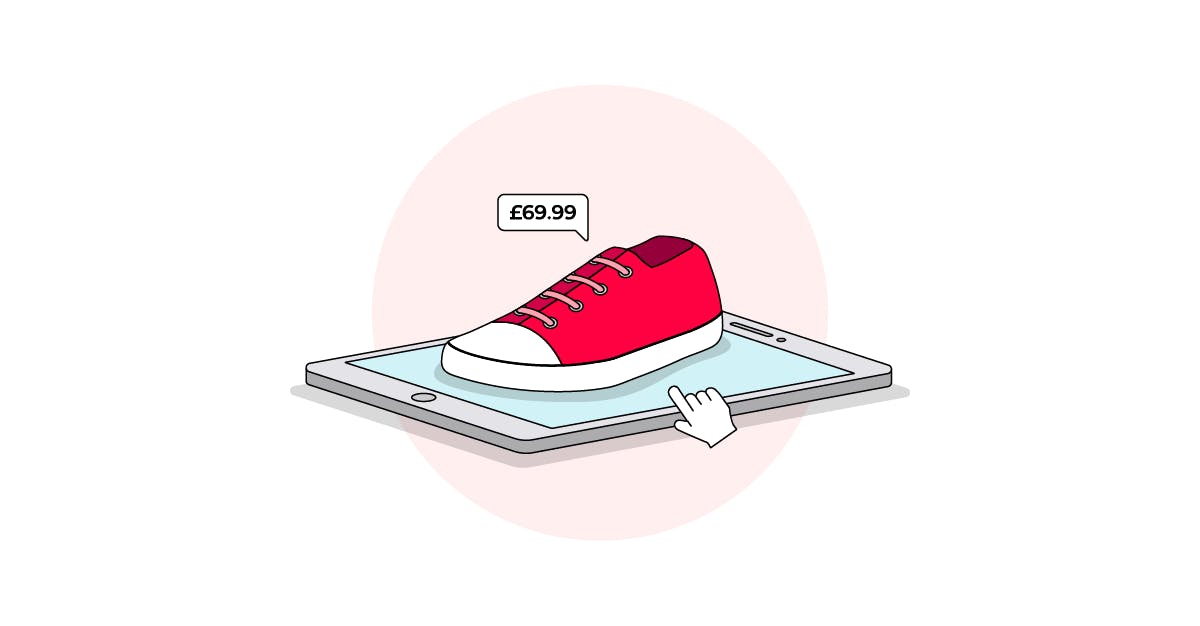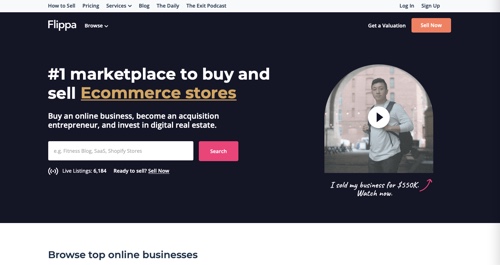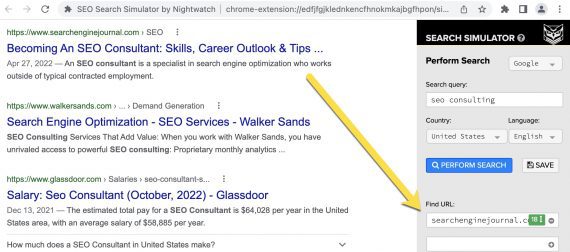
One retailer that recently announced a move into the realm of online marketplaces is Unbound Group, the parent company behind comfort-focused shoe brand Hotter Shoes. The company has partnered with software-as-a-service (SaaS) marketplace platform Mirakl to launch a curated online marketplace which is due to soft launch at the end of July, with a full launch slated for early September.
“So, I think it’s really about how we use the data to support us in the transition of those customers – it certainly worked for us when we moved from that wider retail estate to a smaller footprint. And I think the experience we’ve got from that process will help us drive those digital customers.”
Hotter, Unbound Group’s flagship footwear brand, was founded in 1959 and has more than 4.6 million customers aged 55+ in the UK and overseas, which gives Unbound Group a great deal of experience in catering to this demographic.
Looking ahead, Unbound Group’s efforts are mostly focused on the upcoming soft launch of the platform scheduled for the end of this month, which will see it go live without any marketing or publicity (that will come with the full launch in September), in order to test the end-to-end customer journey and customer support.
Catering to a growing market
The great asset of a marketplace, she said, is “to still have that relationship with the customer, and still have the customer data and the insights that come with it, while being able to test new categories and test broader depths of assortment in certain categories with less risk and less capital implication – because inventory is owned by the seller or the brand, and then ships to the customer. It’s a more flexible business model that caters to the increasing needs of consumers, and I think that’s why you’re seeing that model thrive.”
However, even at this early stage, Rose is definitive about the pivotal role that the marketplace will play in Unbound’s digital strategy going forward. “The marketplace is going to be front and centre of the digital strategy. As we transition, we’re still going to be a manufacturer, but ultimately it’s a digital business, and we’re going to have a digital strategy to grow that – not only with products, but also services that we can potentially offer our customers; so, we’re already looking at the future and how we can grow that digital footprint.”
Deciding whether to emphasise curation or scale is a common challenge that faces retailers who launch a marketplace. Both have their advantages: a highly curated marketplace has a clearer focus and a clearer tie-in to a brand proposition, while also making it easier to vet individual sellers. However, volume and scale are likely to attract more traffic and make the marketplace more of a ‘destination’, while also yielding a greater quantity of customer data.
Unbound Group’s marketplace will be made up of dropship partners initially, but Rose noted that the retailer plans to quickly take advantage of the partnerships offered via Mirakl Connect. He emphasised that Unbound Group prioritises working with “best-in-class” technology providers: “I think what we can offer is a technology stack to partners that want to work with us, so this is really about us bringing in best-in-class technology providers.
Unbound Group has set out to build a curated marketplace first and foremost, and although the ultimate goal is to achieve this at scale, Rose emphasised the importance of not taking shortcuts in the quest to build up the marketplace quickly. “I think that’s something that we have to be disciplined with – the natural instinct is to get as many products on there as possible, but that’s really not what we’re about,” he said. “It takes time to curate those products, working with each partner individually to curate that list rather than taking on a large product portfolio.
Unbound is also looking into potentially offering subscription products to its customers further down the line. “We would like to go down that route – there’s lots of opportunities, but first of all, we need to get this site live … We’re really looking forward to using the data and what we learn from it to drive our digital strategy.”
Attracting partners early on in the process, before Unbound Group had a concrete example of what it was building to show them, also proved challenging. “When we went into this, it was very much an idea – ‘Look, we’ve got a technology stack; this is what we’ve chosen, but we’re not integrated yet; we’ve got quite an aggressive integration timeline.’ I think that made some partners nervous; but now that the platform is built, it’s integrated, we can do demonstrations, even though we’re not live … You see people’s attitude change [as] they realise there is a product there.” Rose added that this trend will undoubtedly continue once the marketplace has been launched. “Once this is live and it’s trading, and we’ve got real-life data to support everything that we’re talking about … I’m really confident that it will gain momentum.”
The benefits of online marketplaces
Online marketplaces are currently being launched by retailers of all kinds – but can any retailer make a success of an online marketplace? While Marchessou believes that they are a key ingredient to retailers’ future success, she added that a marketplace needs to be executed in the right way and with a clear goal in mind. “My view is that, ten years out, all successful players will have a marketplace – because I think that’s what it’s going to take to have the breadth and depth of assortment and be able to be flexible, learn and get the right customer insight,” she said.
Mirakl, Unbound Group’s partner in its marketplace venture, was founded 10 years ago in France and has a strong presence across Europe, including in the UK. “We’re a SaaS company that supports players like Unbound that want to launch their marketplace or dropship and grow their offering in order to be more relevant for customers,” said Sophie Marchessou.
According to an annual study conducted by Mirakl, the Enterprise Marketplace Index, 68% of consumers in the UK believe online marketplaces are the “most convenient way to shop” – “because you can access more products at the right price when you want it,” said Marchessou. She believes that consumers’ desire for this convenience and choice, offered by a retailer that they trust, is a major factor fuelling the online marketplace ‘boom’.
“With the Hotter brand, we sell over a million shoes every year to the [55+] demographic – we have a lot of experience in that space already, and in understanding that market, the audience, and the comfort fit for that demographic,” Rose explained. “What we want to do with Unbound and the marketplace is to expand that range – have a curated list of Hotter products but also support that with products that will allow our customers to do more.
“It’s been an internal selection process, where we’ve set up a team, and that team has really gone out to market and looked at the brands that are out there, and the brands that we feel would work really well for our customers,” he replied. “It’s really about the desirability of the products, the sustainability of them, and making sure that they fit our customer needs.”
Unbound Group has a plan to expand into offering services “at the right time”, and Rose noted that this move would be driven by the insights that the company gets from its marketplace. “We have a customer database of over four million people at the moment, which is one of our strengths, especially in the demographic that we’re in. We’re making sure that we continue to grow that database and learn from it as well.” A lot of work that the company does on Hotter, Rose said, is driven by data: “We do a lot of user research, a lot of experimentation to find out what it is our customers want, and how they want to shop with us – so we’ve got a lot of experience we can bring forward from Hotter onto the Unbound platform.”
Other challenges that Unbound has faced in building the marketplace included conveying to potential partners who were more familiar with the Hotter brand that this would be a fundamentally different model: “We’ve been challenged on, ‘Is it going to be an extension of Hotter in terms of how you promote and trade that catalogue?’” Rose said. “The answer is ‘No, this is a different site – it has to be, because it’s a marketplace’.”
Hotter is a multichannel footwear brand with store locations all over Great Britain, and one of Unbound Group’s plans to expand the customer base that shops with it online is to transition more of its offline customers onto its online channels. This was already something that the company has experience with due to the Covid-19 lockdown, when many of the brand’s stores closed and Unbound Group made a point of reaching out to customers to let them know about its online offering.
“We want it to be really relevant to our customers, so the curation is important to us – it is time-consuming, but it ultimately means we get the right products to our customers.”
Marchessou added that for brands and partners listing their products on a retailer’s marketplace, the platform is attractive because they have more control over the businesses that they work with, “So I think everything is aligned between consumers, retailers’ expectations, and also brands in the ecosystem to fuel the growth of marketplaces.”
Making a success of the marketplace model
“It’s ensuring that we’ve got the right technologies in place that can support the growing digital strategy that we have, and growing online as quickly as possible.”
“It’s about how we can serve that customer base better … and use the marketplace to bring on new products that will excite those customers. When we have those consumers on our site, we’ve worked really hard to drive that traffic to Hotter, so we really need to make the most of that – and give the customer the best offering.”
I asked Rose how Unbound Group has gone about selecting the third-party brands and products that will be a part of the new marketplace.
“I think the good news is that in fashion, shoes, accessories – we’re seeing a lot more interest and traction from brands to expand into marketplaces. Basically, it’s a platform economy, so we’re having a lot of success with recruitment into that Mirakl Connect ecosystem. I think more and more companies will also have a mixed platform offering for brands between dropship and marketplace – which are two very similar models, but slightly different ways of interacting with the operator. That will be another big area of growth and focus for Mirakl.”
Mirakl has also been bolstering its offering as a platform in recent months, acquiring ecommerce personalisation vendor Target2Sell in April, which improves the customer experience for shoppers by creating tailored recommendations and customising the on-page experience. “The thing with the increased [product] offering from a marketplace or dropship – you want to make sure the experience for the consumer is not overwhelming, is tailored to their needs, and we’re very excited about [Target2Sell] because they treat first-party and third-party products alike; it’s whatever makes most sense for the customer. So, for us, that’s going to be a big area of growth,” said Marchessou.
“We went from over 80 stores down to just over 20, although that is starting to grow again,” said Rose. “We found that we could transition those customers – because of the data that we had, we knew if we closed a store down in a particular area, we had the knowledge of the customers in that area; we were able to contact them to market to them directly, and let them know that we still had the same offer online.
“So, a lot of that research was done prior to us moving into this area; we’ve come from a solid base of knowing what our customers want, and the kinds of products and services they would want on a marketplace.”
What’s next for Unbound and Mirakl?
Another major piece of the business that Mirakl is investing in is called Mirakl Connect: a database of brands and partners that will be available to form partnerships with marketplace operators like Unbound. “The idea is that we recruit brands and partners into that database, and then if a customer is interested, they can create a joint relationship,” Marchessou explained.
Is this the age of the retailer marketplace? Over the past 24 months, a diverse array of retailers have taken steps to launch online marketplaces: from outdoor clothing brands such as Decathlon and Mountain Warehouse to supermarkets like Kroger and Carrefour, DIY stores such as B&Q, craft supplies retailers like Michaels, and many more.
Customer data also plays an important role in determining which products will be a good fit for Unbound Group’s customer base: “We have a lot of our own internal data, and we have a lot of customers – we’ve been around since 1959, so it’s about tapping into that database, but also speaking to our customers: running insight panels, finding out what it is that our customers would want if we were to open a marketplace.
“With that said, I think in order to be successful, you also need to have clear positioning and DNA, and create a marketplace that’s consistent with that. So I don’t think it’s about just creating a marketplace for the sake of it. You need to be credible, have traffic coming in, and select the right partners that work for your consumer audience … It’s important to know what you stand for, and we emphasise [to our customers] that creating something that’s in line with your consumer demographics is really what it takes to succeed. It’s very important to be grounded in where you’re really strong and credible.”
“The advantage of a marketplace is that we can continue to grow and continue to add brands that we know will resonate with our customers,” Rose said. “We absolutely intend to add more partners – we believe that we’re at the start of a journey, and we’ve got some really good partners already. However, we’ll learn from this, and we’ll be driven by the insights we get from the platform – so we’ll make sure that we have the data, and we’ll continue to work with our customers to understand what their needs are.”
“Consumers are really looking for choice, the right price, convenience, within trusted platforms – a platform that they enjoy going to; but they’re also now used to being able to find what they want, when they want it, at the right price,” she said. “Their expectations are raising, and I think for retailers that are those trusted go-to platforms for consumers, it is challenging on a traditional wholesale model to be able to supply all that choice, breadth of category, and depth of assortment within a category, because it does have inventory costs, et cetera.
To get an inside look at the considerations that go into launching an online marketplace and the benefits for retailers, as well as why marketplaces are enjoying such a vogue at the moment, I spoke to Will Rose, Technology Director at Unbound Group, and Sophie Marchessou, EVP Customer Success Beauty, Fashion, Home at Mirakl. They explained how Unbound Group came to launch an online marketplace, the challenges it has entailed, why marketplaces may become crucial to retailers’ online strategies, and what the future holds for both Unbound Group and Mirakl.
These marketplaces range from the focused and curated to the vast and diverse, but all are part of a new wave of marketplace launches by retailers looking to scale up their online offering by opening their doors to third-party brands.





